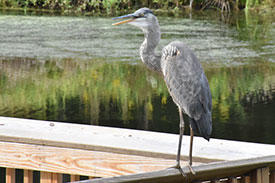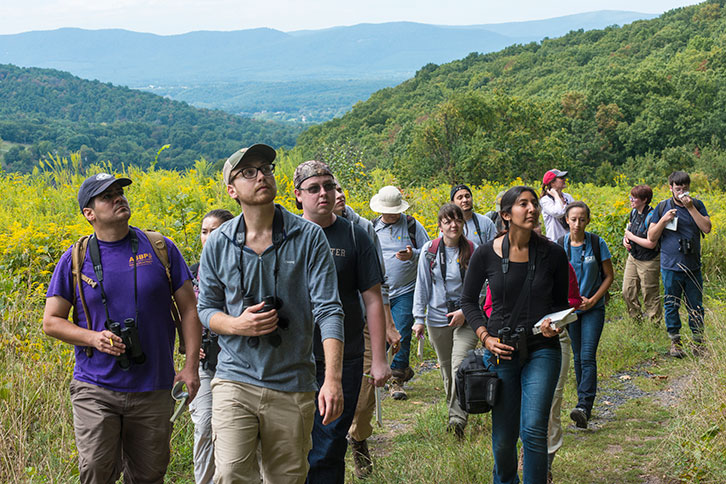Another Option to Study Science in the Field

Mason's Potomac Science Center, along Belmont Bay near the mouth of the Occoquan River, ‚Äčfocuses on environmental science research along the Chesapeake Bay watershed.Őż
Talk About A Classroom With a View ...
Lectures are an important part of learning, but you want more. Experiential learning, research, and field work partner with classroom studies to give you real-world experience while earningŐżacademic or continuing educationŐżcredit at the (SMSC).
Classes are limited to a maximum of 20 students, so you'll be part of a tight-knit team, working withŐżconservationists, researchers, and educators conducting lab and fieldŐżresearch. You'll feel as if you'reŐża working scientistŐż‚ÄĒ ‚Äčbecause you will be.
AndŐżyou'll live in the mountains alongsideŐż. They don't call it the great outdoors for nothing.
Őż
Undergraduates
First-year students can apply to the , which offers:
- ‚ÄčA merit scholarship to attend the program.
- A tour of SMSC and SCBI.
- Priority registration to aŐżone-week summer field course.
- Access to seminars by internationally known researchers and scientists.
Sophomores, juniors, and seniorsŐżhave a choice of three semester-long programs:
- Őż(16 credits)ŐżexploresŐżhowŐżscience, management and policyŐżaffectŐżconservation.
- Őż(16 credits)ŐżusesŐżcutting-edge field techniques to survey species in the wild,Őżand to spot and recordŐżlocal, national, and globalŐżecological patterns.
- Őż(16 credits)ŐżfindsŐżand measure howŐżshrinkingŐżpopulationsŐżare vulnerable, andŐżdevelopsŐżstrategies to halt their path toŐżextinction.
SMSCŐżoffers Őżto students who meet certain qualifications.
Post-GraduateŐż and Professional Studies
study with researchers and practitioners working in the field around the world. ŐżSMSC‚Äôs advanced and highly specialized courses are offered as intensive one or two-week sessions. They‚Äôre crafted and scheduled based on:
- New and existing threats to biodiversity.
- New and existing conservation opportunities.
- Workforce and employer needs and requirements.
- Requests from students.
Students' coursework can be applied to Mason‚Äôs in the Conservation Science and Policy MS or to programs at a student‚Äôs home university. Professionals will earnŐżcontinuing education units (CEUs).
In-depth study of a specialized area of biodiversity could include such topics as:
- Animal surveys.
- Genetics.
- Climate modeling.
- Species monitoring.

